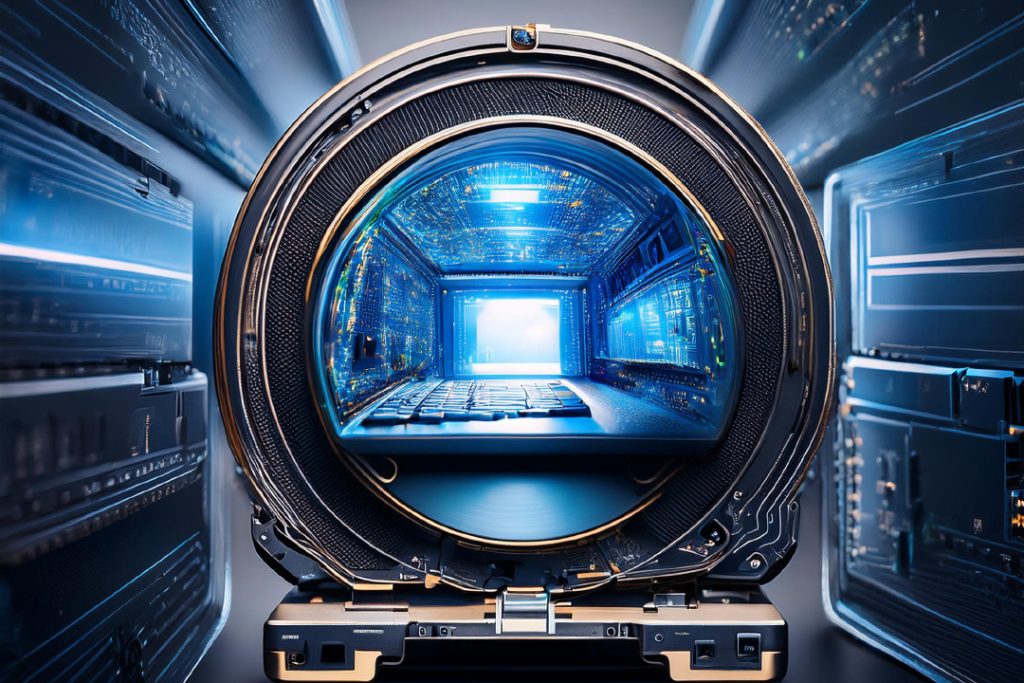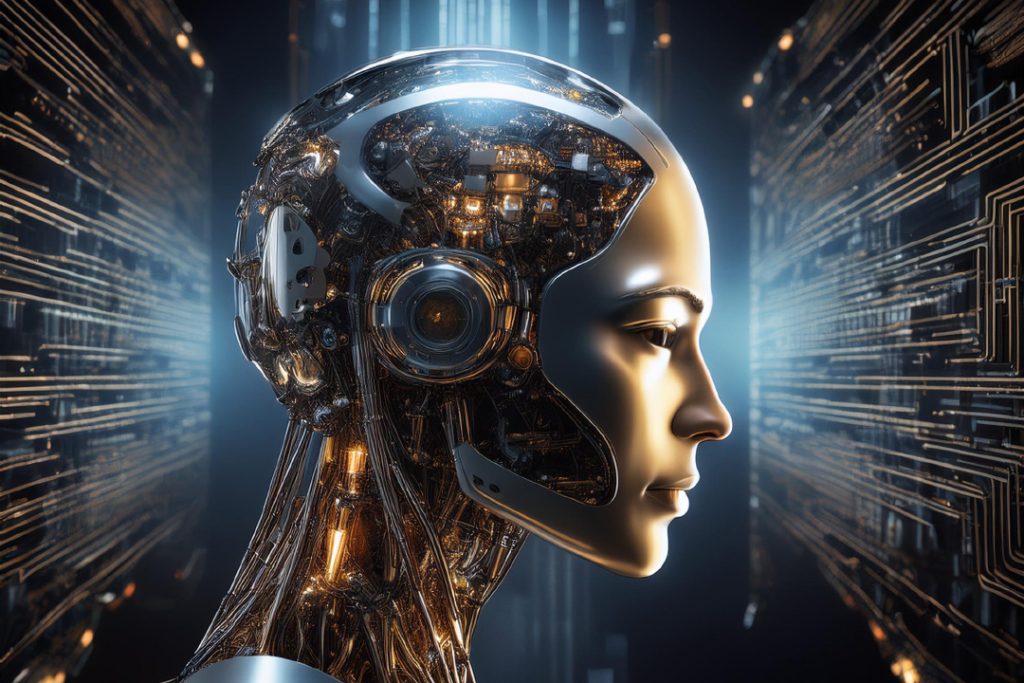Artificial Intelligence (AI) isn’t just a buzzword anymore—it’s a game-changing force that’s already reshaping industries, workflows, and careers. If you’ve ever wondered, “Is AI going to take my job?” or “How can I stay ahead of this change?”, you’re not alone. The next five years will bring massive shifts in how we work, and understanding these changes now can prepare you for what’s coming.
This article will walk you through how AI is transforming jobs, the roles most affected, how to adapt, and how you can future-proof your career. Let’s dive in.
1. Understanding AI: More Than Just Robots
When people think of AI, they often picture robots or machines replacing humans. But AI is more nuanced than that. It refers to machines that can learn, adapt, and make decisions, often mimicking human intelligence. These systems can analyze data, recognize patterns, automate tasks, and even engage in natural conversations—like the one you’re reading now.
The AI we interact with includes:
-
Natural Language Processing (NLP) (like chatbots and virtual assistants)
-
Machine Learning algorithms used in recommendations and predictions
-
Computer Vision for facial recognition, diagnostics, and surveillance
-
Generative AI, which creates content such as text, images, and code
2. The Rise of AI in the Workplace
AI is already embedded in tools you probably use daily. Gmail auto-suggests phrases. Zoom uses facial recognition. Microsoft Word offers AI-powered grammar suggestions. These are just small examples.
But in the next five years, the changes will go deeper. AI won’t just support your work—it will become an active partner or, in some cases, a replacement. According to PwC, up to 30% of jobs could be automated by the mid-2030s, with a significant chunk of that starting within this decade.
3. Industries Most Affected by AI
Not every industry will feel the same impact. Here’s a snapshot of sectors where AI will have the biggest influence in the next five years:
a. Healthcare
AI is improving diagnostics, personalizing treatments, and even performing surgeries. Radiologists, for example, are now working with AI that can detect tumors faster than the human eye.
b. Finance
Banks and investment firms use AI for fraud detection, risk assessment, and algorithmic trading. Routine financial roles, such as data entry and customer service, are being rapidly automated.
c. Retail
Retailers use AI for personalized recommendations, inventory management, and dynamic pricing. Self-checkout kiosks and AI-driven customer chat are becoming standard.
d. Manufacturing
Smart factories use AI to manage supply chains, detect defects, and maintain equipment. Repetitive manual tasks are being replaced by robots and intelligent machines.
e. Marketing & Content Creation
Tools like ChatGPT, Jasper, and MidJourney can now write articles, generate social posts, create images, and edit videos. Content creators are being nudged to become AI-augmented strategists rather than simple producers.
4. Jobs Most Likely to Change or Disappear
Here are job categories where AI will cause the most disruption:
-
Data entry clerks
-
Telemarketers
-
Customer service agents
-
Bookkeepers
-
Proofreaders
-
Paralegals
-
Retail salespersons
This doesn’t mean these jobs will disappear entirely—but their functions will drastically shift. Expect more AI tools doing the heavy lifting while humans manage exceptions and strategic tasks.
5. Jobs That Will Thrive With AI
While AI is replacing some tasks, it’s also creating new roles that didn’t exist a decade ago. Here are some careers that are expected to grow with AI:
-
AI ethicists who ensure AI is used responsibly
-
Prompt engineers who craft precise instructions for AI tools
-
Machine learning engineers and data scientists
-
AI trainers who help machines learn from human inputs
-
Digital transformation consultants guiding companies through AI adoption
In essence, those who work alongside AI, guiding and refining it, will be in high demand.
6. How Your Daily Work Will Change
You might not lose your job to AI, but your job will change. Expect to:
-
Use AI-powered tools that automate routine tasks
-
Spend more time on creative and strategic thinking
-
Manage or oversee AI systems and results
-
Continuously learn new digital skills to stay relevant
Imagine a marketer using AI to generate ten ad concepts in minutes or a lawyer reviewing documents at ten times the usual speed thanks to AI summarization. That’s not science fiction—it’s happening now.
7. The Skills You’ll Need to Stay Competitive
To stay ahead, focus on these future-proof skills:
a. Emotional Intelligence (EQ)
AI lacks empathy and interpersonal skills. People who excel at collaboration, leadership, and communication will always be valuable.
b. Critical Thinking
As AI offers more suggestions, you’ll need to decide which ones are worth following. Evaluating AI-generated outputs is a key skill.
c. Tech Literacy
You don’t need to code, but understanding how AI works—its strengths, limits, and applications—will help you use it effectively.
d. Creativity
AI can assist in the creative process, but original thinking and innovative ideas still belong to humans.
8. Ethical and Societal Impacts
As AI becomes more involved in decisions, ethical concerns are growing. Bias in AI, data privacy, and the potential for surveillance are all real challenges.
Employees must understand how to use AI responsibly, particularly in roles involving sensitive data or high-impact decisions.
9. What Employers Are Looking For in an AI World
Hiring managers are already seeking candidates who are:
-
Adaptable to change
-
Comfortable with AI tools
-
Eager to learn continuously
-
Able to bridge the gap between tech and human needs
Upskilling will be key. Platforms like Coursera, Udemy, and LinkedIn Learning offer AI-focused courses for various industries.
10. How to Future-Proof Your Career
Here’s your action plan to stay ahead:
-
Embrace lifelong learning – Stay curious and up to date.
-
Build a digital skill set – Learn how to use AI tools relevant to your field.
-
Develop soft skills – Communication, empathy, and leadership will always matter.
-
Network with forward-thinking professionals – Join groups and attend events focused on AI and digital innovation.
-
Create a personal brand – Showcase your adaptability and tech-savviness on LinkedIn or a personal website.
Conclusion: AI Is a Tool, Not Your Replacement
In the next five years, AI will reshape almost every profession—but it doesn’t have to be scary. In fact, if you approach it the right way, AI can make your job easier, more impactful, and even more fulfilling.
The key is not to resist the wave—but to learn how to ride it. By becoming someone who understands, adapts, and thrives in an AI-driven world, you’ll not only protect your career—you’ll elevate it.
So ask yourself: What’s one AI skill I can start learning today? That small step might just lead to the future you didn’t even know was possible.
Here some recommended links selected for you: The Best Books of the Month, Todays best Deals at Amazon, Best Sellers in Cell Phones & Accessories and last but not least the easy and great way to send a gift for the holidays: Amazon.com eGift Card (Instant Email or Text Delivery).




